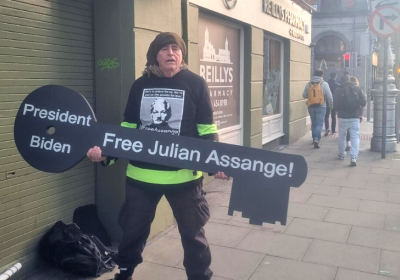
Irish-Australian anti-war activist Ciaron O'Reilly was arrested outside Dublin Castle while attempting to deliver a giant prison key to United States president Joe Biden, reports Kerry Smith.

Irish-Australian anti-war activist Ciaron O'Reilly was arrested outside Dublin Castle while attempting to deliver a giant prison key to United States president Joe Biden, reports Kerry Smith.
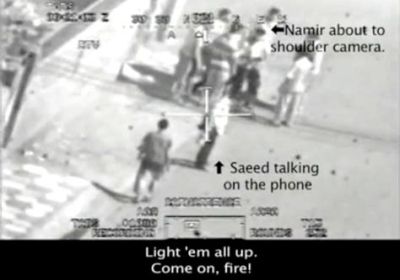
As with all matters regarding United States policy, Australia will, if not agree outright with Washington, adopt a non-committal position — “quiet diplomacy”. Binoy Kampmark reports.
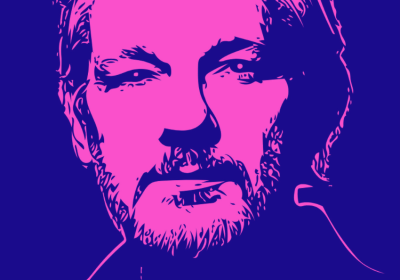
Democratic Congressperson Rashida Tlaib has urged fellow Congress members to sign a letter to US Attorney-General Merrick Garland urging him to drop the charges against Julian Assange, reports Binoy Kampmark.
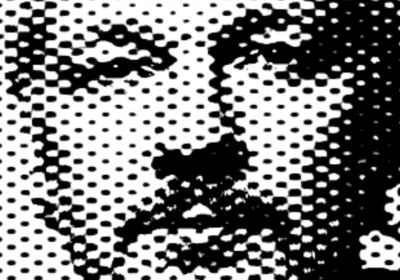
The campaign to free Julian Assange is about our most precious human right: to be free, writes John Pilger.
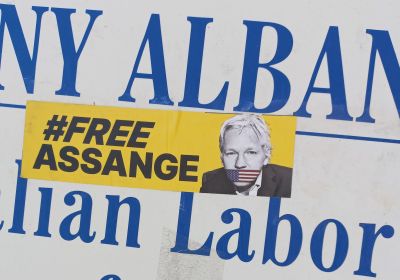
Anthony Albanese publicly revealed that he had been lobbying the Joseph Biden administration to stop proceedings against Julian Assange, reports Binoy Kampmark.

Every Thursday a “honk for Julian” protest takes place outside the Prime Minister Anthony Albanese’s electoral office in Marrickville. Stephen Langford reports.
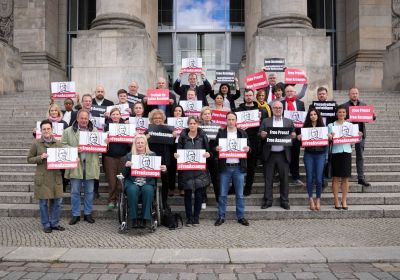
Jennifer Robinson, Julian Assange's lawyer, told the National Press Club that if the appeal fails and Assange is extradited to the US, his prison conditions will be at the whim of intelligence agencies which plotted to kill him. Binoy Kampmark reports.
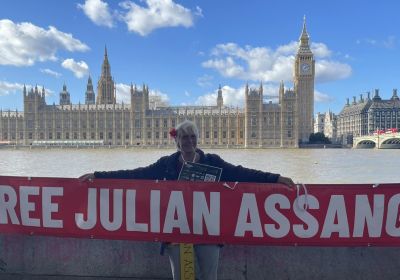
An indifferent Australian government has looked on as legal due process for Julian Assange has been trashed. Stuart Rees reports on Nils Melzer's new book The Trial of Julian Assange.
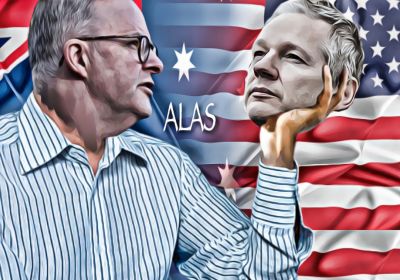
The turnout for the October 8 "human chain" around British Parliament to demand the release WikiLeaks founder Julian Assange, exceeded organisers’ expectations, reports Susan Price.

Julian Assange’s legal team are challenging the British court's view that it would not be an abuse of process to extradite him to the United States, on the basis that Assange is being prosecuted for his political opinions. Binoy Kampmark reports.
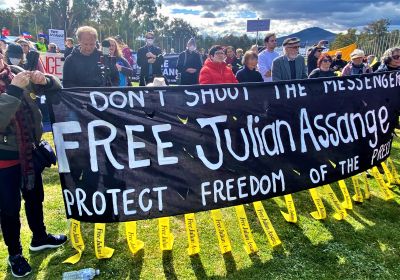
Protesters gathered at Parliament House to demand the Labor government apply diplomatic pressure to the British and United States governments to drop the political case against Julian Assange. Kerry Smith reports.

Beware powerful people who claim that democratic governments in the United States, Britain and Australia administer justice always according to some time-honoured principle about rules of law, argues Stuart Rees.